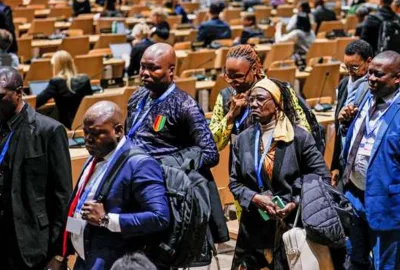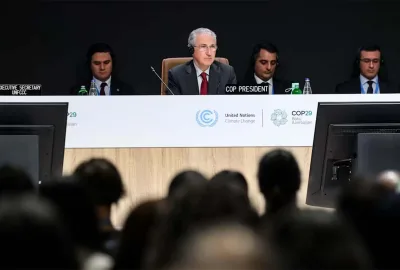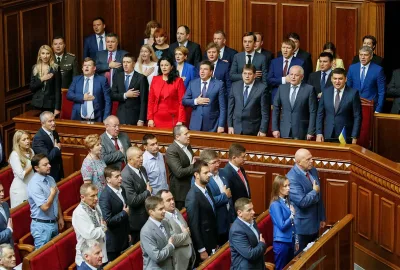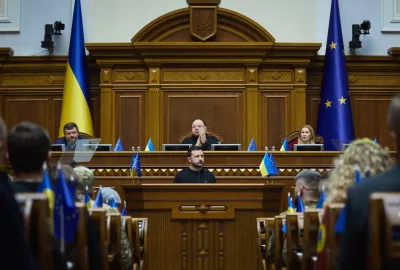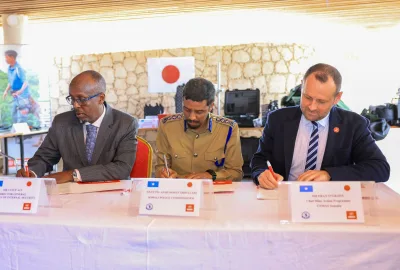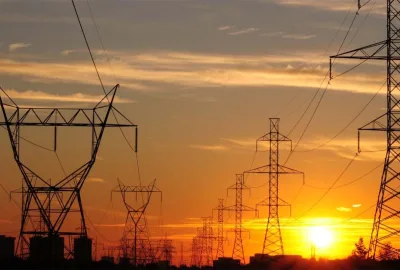The term of the current Federal Government of Somalia ends August 2016 and a new government…
The term of the current Federal Government of Somalia ends August 2016 and a new government must be in place by September. The time is too short and the country has just decided the preferred electoral model (4.5 formula) to select members of the parliament, which will then elect leaders of the country including the Speaker of the Parliament and the President of the country.
The country has had successive governments since 2000 and none of these governments succeeded in holding an election based on universal suffrage, which was their presumed mandate and the dream of all the people of Somalia since the collapse of the government of Siad Bare in 1991.
The people of Somalia should now ask themselves why the country is unable to achieve democratic elections of one person one vote in all these years. The fundamental question is whether Somalia needs change or continuity?
This paper attempts to find some of the answers and challenges based on historical events that are likely to influence major decisions as the country heads for the crucial elections in August/September.
It is not without doubt, that each of the successive governments since 2000 have contributed some milestones towards the current political, economic and social progresses that the country is witnessing despite the challenges of insecurity. But what is becoming clear is that the people of Somalia—in their anxiety for a government that would change things for the better taking advantage of the abundant natural and human resources—have been setting up ambitious targets that they all know were impossible to achieve.
All successive governments since 2000 had huge challenges that prevented them from fulfilling their mandated tasks, but the problem is that the people of Somalia have not learned from these failures and keep on bringing in new changes with the hope that one would succeed where others failed. Let us first look at challenges experienced since 2000.
The Transitional National Government (TNG) – 2000 – 2004
In 2000 the Arte conference in Djibouti produced the famous power sharing called 4.5 formula. Abdiqasim Salad Hassan became the President of the Transitional National Government (TNG) and was welcomed in Mogadishu with open arms, given that it was the first time that Somalia to be represented at the international stage since 1991.
But most warlords in Mogadishu were not part of the process and they immediately rejected the TNG and its leadership. The TNG had no resources, no offices, and no institutions. Ministers, MPs and leaders stayed in hotels hoping that the international community would provide the resources while making no efforts to raise funds through their own initiatives.
The challenges, combined with political infighting soon took their toll, leading to the Eldoret Reconciliation Conferences, which took place in Kenya from 2002 to 2004. The conference resulted into the adoption of the Somalia Federal Charter that replaced the 1960 constitution. In 2004 Abdullahi Yusuf Ahmed was elected as the President of the TFG.
The Transitional Federal Government (TFG) – 2004 – 2009
The election of President Abdullahi Yusuf Ahmed took place in Nairobi where the outgoing president Abdiqasim Salad Hassan handed over the power, marking the beginning of what would look like a peaceful transition of power in Somalia since 1967.
While the parliament and the council of ministers were initially based in Nairobi planning how to move to the capital Mogadishu, the political infighting begun immediately where some of the warlords that had been incorporated into the cabinet, disowned the government.
The President, the Prime Minister, most of ministers and some MPs moved to Jowhar district in Middle Shabelle region while the Speaker, warlords who were ministers and MPs and some MPs went to Mogadishu.
The standoff went on till January 2006 when the then President Abdullahi Yusuf Ahmed and the then Speaker of the parliament Sharif Hassan Sheikh Aden signed an agreement in Aden, Yemen to agree to bring both sides together to enable parliament to sit inside Somalia.
But a few months after parliament begun to function in Baidoa, the war against warlords in Mogadishu where the Islamic Courts Union (ICU) emerged victorious. It was the first since the civil war begun in1991, that one group was able to take control of the capital.
Islamic Courts Union gained the support and the confidence of the people inside and outside of the country. Shortly after, negotiations started in Khartoum, Sudan between ICU and TFG. However, the talks failed since hard-liners within ICU refused to sign an agreement with the TFG.
Thus, political infighting within TFG continued with the Speaker and a number of MPs rejected President Abdullahi’s leadership and going to exile. In the meantime in December 2006, Ethiopian forces entered Mogadishu and ICU leadership fled from the city to Kismayo. Due to the Ethiopian intervention, the president of Somalia in 2007 for the first time occupied Villa Somalia since 1991.
The Djibouti reconciliation conference begun in 2008 which led to the famous Djibouti Agreement that allowed opposition groups including the ICU and exile MPs to be given 275 MPs similar to the then parliament of TFG. President Abdullahi Yusuf resigned in December 2008 and as part of Djibouti agreement it was agreed to proceed the implementation of the Djibouti Agreement instead of TFG electing a new President in Baidoa.
The Transitional Federal Government 2009 – 2011 (but extended to 2012)
As part of the Djibouti Agreement, a national union parliament of 550 MPs were sworn in Djibouti and the election of the president was held in January 2009. Sheikh Sharif Sheikh Ahmed became the President of the TFG. This was the first time in Somali history for opposition groups and the government to be given equal MPs in the parliament.
However, since the parliament was based on the famous 4.5 power sharing formula, they never worked as one entity given that the two groups that came together instead continued to pursue their clan interests.
Sheikh Sharif Sheikh Ahmed immediately faced all the challenges that the previous government faced, including lack of resources, political infighting etc. In the meantime, Al-Shabaab regrouped, infiltrated the societies and captured most of South and central cities including half of Mogadishu.
In the state of confusion, parliament’s attempt to extend its term by three years was immediately rejected by the international community. Subsequently, the Kampala Accord brought together President Sheikh Sharif Sheikh Ahmed and the Speaker Sharif Hassan Sheikh Aden for a one-year extension of the parliament and the replacement of the then Prime Minister Mohamed Abdullahi Mohamed (Farmajo).
The Kampala Accord introduced a new roadmap where parliament was not allowed to bring motions of no-confidence against leaders. The roadmap worked to a certain degree as TFG Leaders and leaders of Puntland, Gal Mudug and Ahlu Sunna Waljamee’a worked very hard on the implementation of the roadmap. The government managed to limp on till 2011 when Al-Shabaab was thrown out of the capital city of Mogadishu with the help of African peacekeepers.
Subsequent agreements reached in Mogadishu, Galkacyo, Garowe I & II agreed to end the 12 years of transitional government to a permanent government. In August 2012 a new parliament of 275 MPs were sworn in, constituency assembly approved the provisional constitution and a Speaker and President were elected for a 4 year term, despite the provisional constitution stated 5 year term.
The Federal Government of Somalia (FGS) – 2012 – 2016
The first permanent government of Somalia was established in 2012 and Hassan Sheikh Mohamud was elected as the President of the Federal Government of Somalia on 10th of September 2012. Immediately Somalis as well as international partners hugely welcomed the President and the government, as a sign of hope.
But soon, the presidency of Mohamud started facing the same challenges, however, political infighting were solved sooner through traditional mechanisms. So far, two prime ministers have been sacked by the parliament. Despite of all the challenges, President Mohamud’s government created a Somali owned and Somali-led processes with all disputes being solved through traditional peace mechanisms without foreign interference.
It is also clear that for the last three and half years, the country witnesses huge progress in many areas such as security, public finance management, political outreach to regions, and economic revival. As the term of the current government comes to an end, there are positive signs that Somali leaders are working together with a view to finalise the electoral model that can be implemented before September 2016.
What went wrong?
I strongly believe that we, the people of Somalia have failed to understand the enormous challenges that our successive governments faced and we are yet to grasp the gravity of the problems facing the country.
For example, our belief for all these years that the international community has obligation to support the country financially, has to go. Citizens instead of asking themselves how they can support and make the government financially stable, instead continue to expect financial support from the government.
This, perhaps, emanates from the famous Somali saying; Dowladaa Gacanweyn, meaning “government has a big hand”. This has become a culture and until the people of Somalia change this attitude it will be difficult to see the government as a servant to the people.
I am not in any way suggesting that our culture has been the single most factor in the failure by the successive governments to fulfill their mandates. Rather, I am advocating for strong institutions that will not depend on the charisma of an individual.
One thing that the people of Somalia forgot to appreciate when President Abdullahi Yusuf Ahmed resigned is that he was the first ever President to resign from office. It means he had a strong character to take responsibility for the failures of his government. In his first speech when he became the President of Somalia in 2004, he said that he will resign if he fails to deliver. He took a brave decision as he could have stayed until the end of his term.
The Way Forward
The question now is, do the people of Somalia need change or continuity? I take the position that the country cannot afford to another trial and error and we need individuals with institutional memory that is necessary to enhance and improve on the progress that has been made so far.
I have also outlined that all successive governments have had similar challenges and problems that prevented them from fulfilling their mandate. Therefore, I strongly believe that the country cannot afford another trial of new leaders who have no experience, which would have serious implications on the progress made so far.
Since 1991, all those who have held senior position from the presidency to the cabinet except Abdiqasim Salad Hassan had no previous in government and corresponding institutions. The reason why all successive governments have experienced political infighting is because they did not understand on how the cabinet function as the executive branch of the government.
We have seen and witnessed time and time as the president pushes the PM to appoint someone without considering that the PM needed to convince all ministers in order to reach a consensus in Somalia’s peculiar democratic process of consultation and compromise
However, if the overwhelming majority say that change must happen, then the people of Somalia must be on the alert to scrutinise the caliber of those seeking leadership with the objective of finding out whether they have the capacity for peace building and national stability.
I have also outlined that one of the key factors that prevented all the successive governments to succeed is our culture and how we behave towards governments. We seem to expect the government to give us resources instead of demanding for services. But services can only come when we fulfill our obligations as citizens by paying tax.
This culture is really what encourages corruption within our society. Families will do all they can to demand that their son or daughter will be given a good position within the government, in order for them to become rich or build houses. This cultural perception and mentality must stop. I know this is the role for our leaders to set an example like President Paul Kagame of Rwanda, but for the case in Somalia where the whole society need to be reformed, it may be very difficult task but it can be done.
The challenges of lack of resources, insecurity, lack of human capacity, lack of functioning institutions and many more challenges that faced all successive governments are very valid excuses for any government. However, I strongly believe it is time for national debate, taking into account lessons learned in the past in order to ensure that the next government fulfills its mandate of holding fair and free elections by 2020.
Conclusion
I therefore conclude that the people of Somalia need to elect leaders that have the institutional memories. Leaders that do not need to spend years to understand how systems of governance work.
Since 1991, we have been electing presidents that have never worked in council of ministers, except Abdikasim Salad Hassan. Most of Presidents or Prime Ministers lacked institutional memory and never held senior positions within the government institutions prior to holding the highest position in the government.
Again we never had a minister for the same portfolio for more than a year. At times we had all new ministers, new prime ministers and new Presidents. That is why all governments since 2000 failed to meet their set goals. The definition of insanity is doing the same thing over and over again, but expecting different results.
The people of Somalia need ask themselves whether they still need the current system of governance where both the president and prime minister enjoy executive power. This has been the source of constant feuds between the two top offices. In my view, we either adopt a pure presidential system such as Kenya, Djibouti and Uganda among others, or adopt a parliamentary system like UK or Australia where the prime minister is the head of government and the president is the ceremonial head of state.
If we need to achieve more and bring progress and prosperity in the country we need to change the method and ways that we used to elect our leaders. Sixteen years is more than enough to learn lessons and to have real changes that can produce different results. I, therefore, believe that we need to elect leaders that have the institutional memories that have learned lessons from their past mistakes
Mr Abdirahman Omar Osman (Eng. Yarisow) is a former Minister of Treasury, former Minister of Information, and former Senior Advisor and Spokesperson to the President and the Prime Minister of Somalia. Worked 10 years in UK local government as Area Housing Manager. engabdirahman@gmail.com


